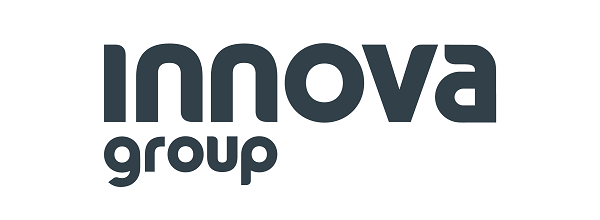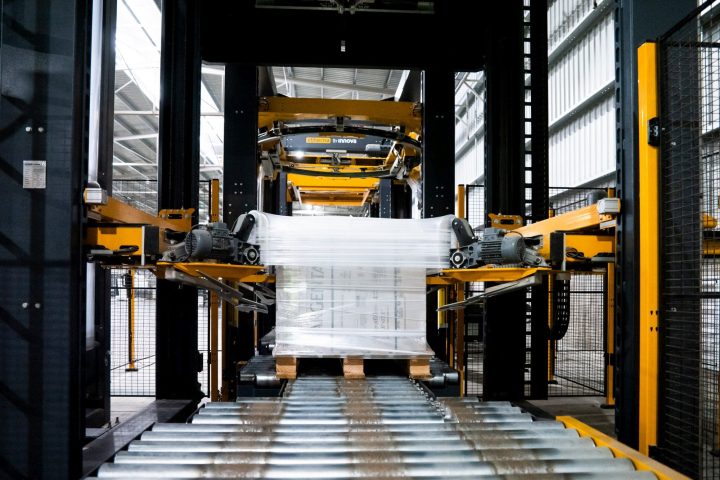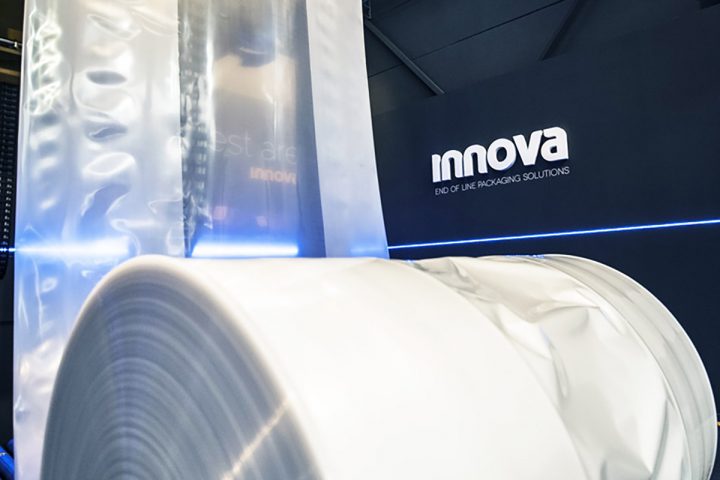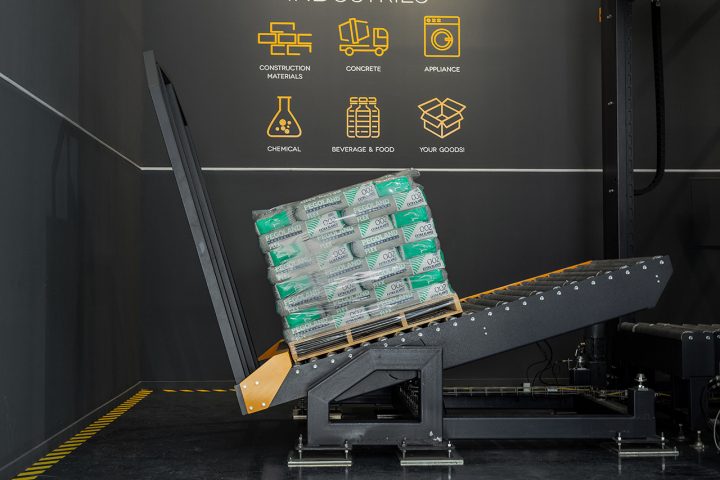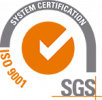Challenges and Trends in Packaging and Logistics for 2025: Sustainability, AI, and Automation
This title highlights the key themes we can expect to see in packaging and logistics by 2025, focusing on sustainability, the integration of artificial intelligence, and the rise of automation. The logistics and packaging sector is preparing to face 2025 amid significant changes and transformations, where technological breakthroughs, the urgency of sustainability, the demand for more efficient solutions, and the fast-paced evolution of Artificial Intelligence (AI) are changing how the industry operates. Different challenges, such as advanced automation, carbon footprint management, and complex geopolitical dynamics cause companies to need to innovate and adapt quickly to avoid being left behind.
This article highlights key trends and challenges shaping the future of logistics and packaging, along with strategies companies must adopt to thrive in a competitive and constantly evolving environment.
Industry challenges for 2025
1. Complexity in supply chain management
The global supply chain will continue to face a number of challenges, such as raw material shortages, logistical disruptions, and economic fluctuations. In addition, other factors such as the effects of geopolitical tensions and climate change, will not help to improve the situation. Companies must enhance their management of risks related to bottlenecks, optimize their supplier selection process, and strengthen their adaptability to potential disruptions.
2. Increasing regulatory pressure and environmental expectations
2025, and the following years, environmental regulations will become progressively stricter. Governments worldwide are enacting strict regulations on the sustainability of packaging materials. The new Packaging and Packaging Waste Regulation to be implemented in the EU, as well as the tax on non-recycled plastic in different European countries, are two examples of this regulatory pressure.
To avoid penalties, companies must adhere to circular economy policies that promote reuse and recycling. This is essential for meeting the 2030 Agenda and the Sustainable Development Goals (SDGs). Additionally, companies will need to manage the increased costs associated with transitioning to more sustainable practices.
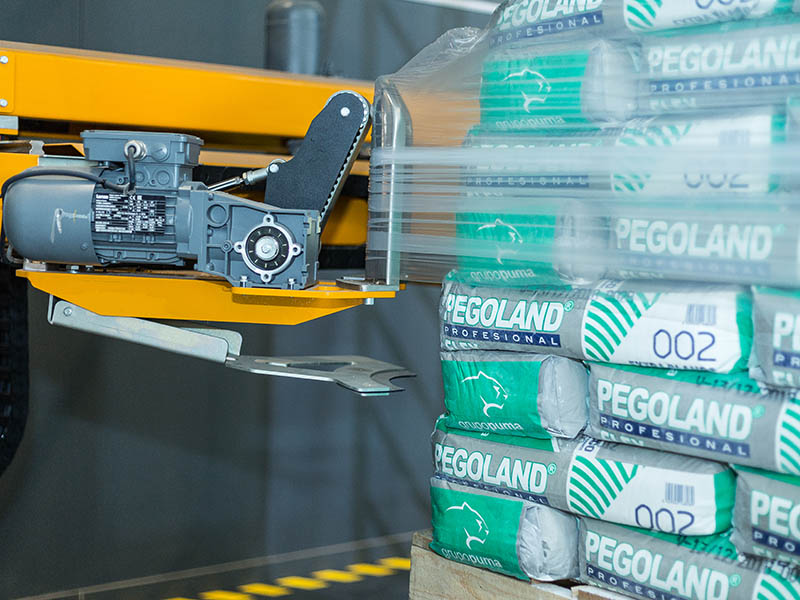
3. Labor shortages
The logistics and packaging industry continues to face the problem of skilled and unskilled labor shortages. The lack of interest of the younger generation in working in logistics or performing routine or manual tasks will still be present in 2025. The solution to this problem lies in full automation and the smart factory. Today, machines perform warehousing, packaging, or even transportation tasks to reduce dependence on a scarce workforce.
4. Continuing digital transformation and the definitive AI ‘boom’
Digital transformation continues to be a major driver of evolution and innovation in logistics and packaging. By 2025, advancements in artificial intelligence will have set new standards. While the new machine learning technologies offer highly revolutionary solutions, they also represent a significant challenge. Today’s companies, in addition to investing in technology infrastructure, also have to adopt strategies that allow them to integrate AI into their operations efficiently.
Trends and responses to these challenges by 2025
1. Automation and advanced digitization of warehouses
In 2025, automation will consolidate its position as one of the most relevant trends in the logistics sector. To make the most of the possibilities of new technologies, intelligent warehouses or 4.0 warehouses are appearing on the scene, logistics centers that are more efficient, profitable, and productive when it comes to carrying out their tasks of receiving, storing and dispatching goods.
These intelligent warehouses are shaped by 4 fundamental technologies:
- Warehouse automation.
- Warehouse management software, which acts as the brain of the logistics center’s operations.
- Technologies such as RFID readers that allow each product to be an interactive node, transmitting real-time data on location, status and conditions.
- Advanced and disruptive technologies such as Big data, AI, or the Internet of Things (IoT), which allow machines to work with little or no human intervention.
All of these technologies allow for increased process optimization, as well as increased productivity by up to 77%, as companies that adopt these technologies will be better positioned to reduce operating costs, improve efficiency, and offer a more personalized customer experience.

2. Sustainable and circular packaging
The commitment of companies to environmental sustainability is not new, but by 2025, it will be an unavoidable requirement. As discussed above, new regulations on the use of plastic are pushing the packaging industry to modify its packaging strategies, opting for more environmentally friendly materials and production processes that reduce the carbon footprint.
Sustainable innovations:
- Reduction in plastic usage: A significant decrease in conventional plastic usage is anticipated as it is replaced by more sustainable alternatives.
- Biodegradable and compostable materials: The demand for bioplastics and recycled cardboard is increasing, with a greater emphasis on packaging solutions that promote efficient waste disposal.
- Circular economy: The Circular economy concept, which promotes the recycling and reuse of materials, will become a priority for the sector.
Companies will be driven to invest in recycling technologies and sustainable material innovation to meet the growing demand for products with low environmental impact and align with sustainable regulations. Some examples and trends in more sustainable logistics packaging materials are stretch film or Stretch Hood film with highly recycled components, stretch paper consumables for automatic pallet wrappers, stretch paper strapping, cardboard pallets for light loads, or palletless palletizing for sack loads, etc.

3. Smart and connected packaging
Smart packaging will be one of the great revolutions in the logistics and packaging sector in the coming years. This type of packaging not only protects the product but also interacts with the consumer and provides additional information to offer a better service.
Smart labels (NFC/RFID), which allow the consumer to access digital product information, such as origin details, instructions for use, or special promotions; supply chain monitoring, through the use of sensors that measure temperature, humidity, and other critical factors to ensure product quality during transportation, is becoming increasingly common.
4. Customized labeling
Personalized labeling is a solution that stands out for providing detailed information tailored to the consumer. This is a trend emerging due to increased consumer demand for transparency, as they seek accurate and clear information about the products they purchase.
In addition, customized labeling also becomes an effective marketing tool to interact with the customer and offer a unique experience while complying with increasingly stringent regulations on product labeling, allowing an efficient adaptation. Companies that utilize tailored packaging solutions will be better positioned to cultivate customer loyalty and distinguish themselves in a highly competitive market.
5. Blockchain for logistics traceability
Product traceability will become increasingly important for brands that want to guarantee the authenticity of their products and strengthen consumer confidence. The use of blockchain technology will enable companies to offer full visibility of their supply chain, which will help increase consumer confidence, reduce the risk of fraud, and improve company transparency while optimizing verification processes.
All in all, the coming 2025 is shaping up to be a period of accelerated transformation in the logistics and packaging industry. New emerging trends and technological advances, especially in AI and automation, are opening up new opportunities for the industry. However, these same advances require constant adaptation and a strategic approach to successfully implement them and remain competitive.
From Innova Group, with more than 20 years of experience offering advanced solutions for the end of the line, we are ready to accompany you in this new stage of digitization and automation of the sector. Contact us without obligation, and we will advise you to find a customized packaging solution for your company.
